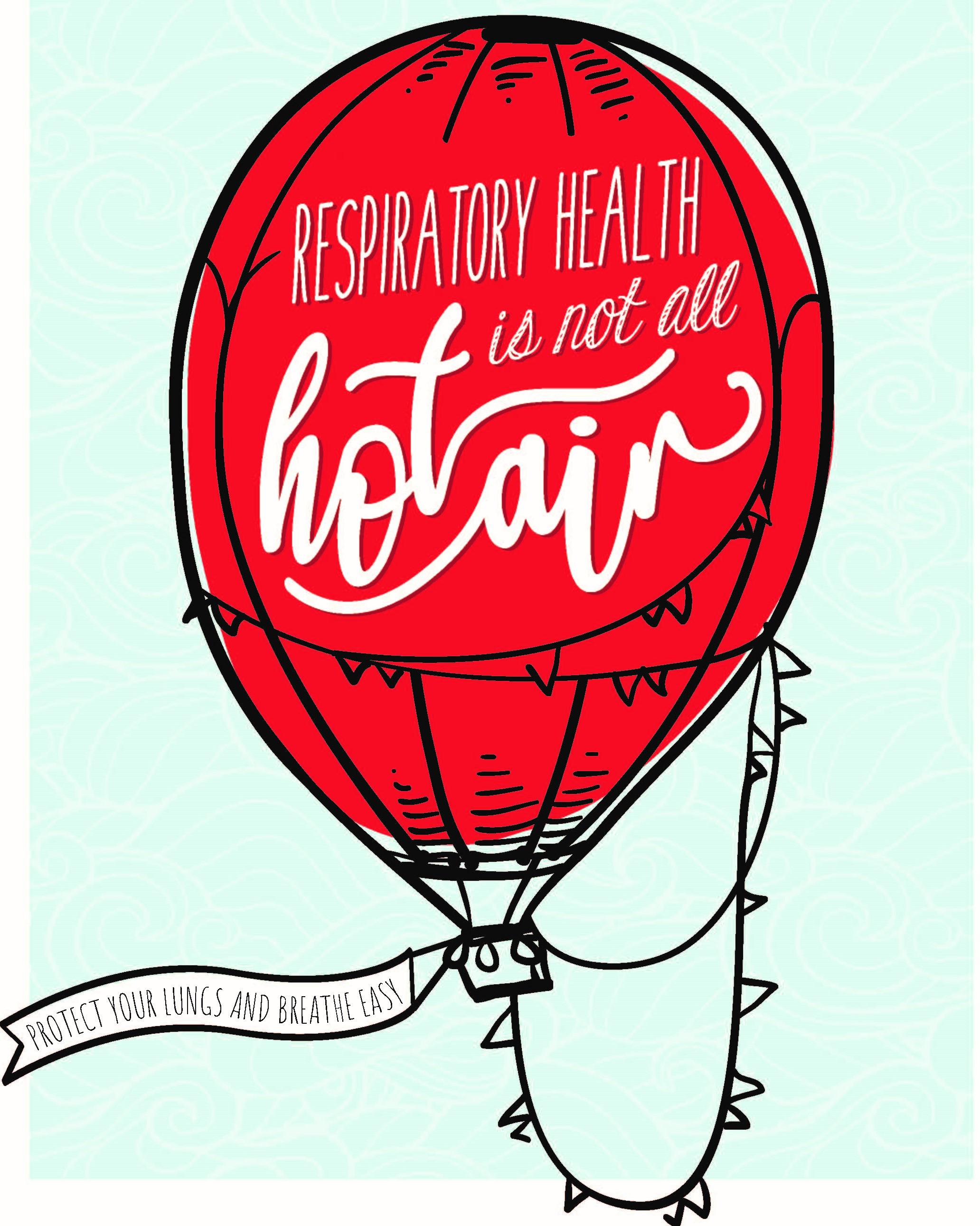Respiratory Health Is Not All Hot Air
Respiratory Health Is Not All Hot Air

Take a deep breath, and as you do, take a moment to appreciate the importance of lung health.
Our lungs affect every part of our lives. That’s why we should take steps to keep them healthy and strong. Here are a few key ways to protect your lungs.
No Smoking
Smoking can harm your health in many ways, but it’s especially dangerous for your lungs. It’s the main cause of lung cancer and chronic obstructive pulmonary disease, which includes chronic bronchitis and emphysema.
The good news: Quitting smoking will improve your health, no matter how long you’ve been a smoker. There are many resources available to help you quit. Talk to your doctor or visit the American Lung Association’s website at www.lung.org.*
Breathe Clean Air
Chemicals and secondhand smoke can affect your lung health. Don’t allow smoking in your home or car. Test your house for radon, a naturally occurring gas that can be harmful. Don’t store hazardous chemicals inside and keep humidity levels under 50 percent.
Dangerous air conditions can occur outdoors, as well. Monitor air pollution levels. You can check your local weather report or look at the U.S. Air Quality Index at www.airnow.gov.* If air quality is poor, limit your time outside. Don’t exercise near busy roads. Vehicle emissions can pollute the air up to a third of a mile away.
Stay Healthy
It’s always a good idea to take steps to prevent catching a cold, but it’s especially important for your lung health. Even a common cold can cause a serious respiratory infection. Avoid illness and protect your lungs by washing your hands often. If you can’t wash your hands, use an alcohol-based hand sanitizer. Avoid crowds during cold and flu season. Get the flu vaccine.
Exercise
Any amount of exercise is good for your overall health, and that includes your lung health. Physical activity makes your lungs work harder, which makes them stronger. Choose any type of movement you enjoy, such as walking, gardening or bicycling. Exercise is beneficial even if you are already living with lung disease. Talk to your doctor about your fitness goals.
See Your Doctor
Don’t skip your annual checkup with your physician. Your doctor will listen to your lungs to uncover warning signs of potential problems like lung disease. This is important because lung disease is sometimes not detected until it has already become serious.
Take good care of your lungs, and you’ll breathe easy.
*The American Lung Association and the U.S. Air Quality Index are independent organizations that offer health information you may find helpful.
